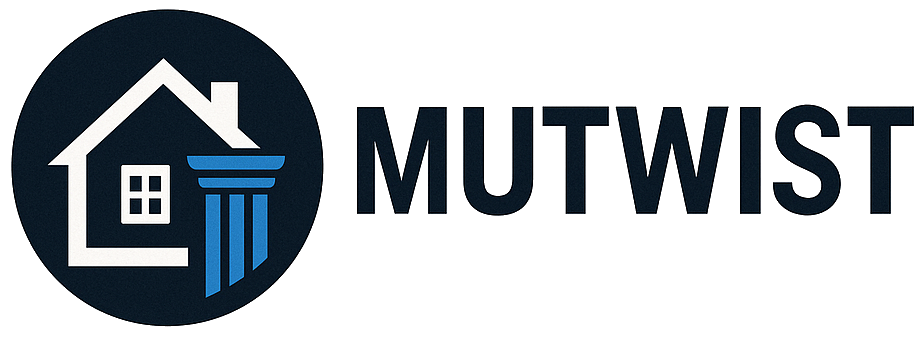The European Union has positioned itself at the forefront of regulating digital finance through the introduction of the Markets in Crypto-Assets Regulation (MiCAR). As the world’s first comprehensive regulatory framework for crypto-assets, MiCAR marks a significant step in ensuring market integrity, consumer protection, and financial stability in the burgeoning crypto economy.
One of the more critical and operationally impactful elements of MiCAR is the requirement for foreign Virtual Asset Service Providers (VASPs) — that is, crypto service providers established outside the EU — to designate a central contact point within the Union. This measure is designed to ensure regulatory oversight, facilitate communication with supervisory authorities, and enforce compliance with EU standards.
This article explores the rationale behind this requirement, how it works, its implications for foreign crypto businesses, and the steps needed for compliance.
What is MiCAR?
MiCAR, formally adopted in 2023 and entering into force in phases through 2024 and 2025, is the EU’s groundbreaking regulatory framework for crypto-assets not covered by existing financial legislation (such as MiFID II). MiCAR applies to:
Asset-referenced tokens (ARTs)
E-money tokens (EMTs)
Other crypto-assets (including utility tokens)
Providers of services such as crypto trading, custody, issuance, and exchange
MiCAR seeks to create legal clarity, investor confidence, and regulatory harmonization across all 27 EU Member States, replacing the fragmented approaches that previously governed the crypto industry in Europe.
Foreign VASPs Under MiCAR
Who Are Foreign VASPs?
Foreign VASPs are crypto-asset service providers that are:
Established outside the EU
Intending to offer crypto-asset services within the EU
Not otherwise licensed or authorized under EU law
These may include large global exchanges, DeFi platforms (if they exhibit centralized elements), and wallet providers based in jurisdictions such as the U.S., Singapore, or the UAE.
Why Focus on Foreign VASPs?
The requirement for a central contact point stems from concerns over:
Regulatory arbitrage: Firms operating from lax jurisdictions could exploit loopholes in less-regulated EU countries.
Enforcement challenges: Without a physical or legal presence, it becomes difficult for EU authorities to investigate or hold foreign VASPs accountable.
AML/CTF (Anti-Money Laundering/Counter-Terrorism Financing) compliance: Supervisors must ensure that crypto firms adhere to the EU’s AML Directive (AMLD6) and other obligations.
Consumer protection: EU citizens using foreign platforms should enjoy the same protections as those using locally authorized services.
The Central Contact Point Requirement
What Is a Central Contact Point?
A central contact point is a designated individual or entity located within the EU who acts as the regulatory liaison for a non-EU VASP. This contact point is not just a mailbox — it must have the authority, capacity, and knowledge to:
Serve as the primary interface with competent EU authorities
Respond to information requests
Ensure the VASP’s compliance with MiCAR obligations
Coordinate AML/CTF measures and provide transaction data if requested
Facilitate onboarding reviews and complaint handling for EU users
Legal Basis and Regulatory Source
The requirement is outlined in Article 61 of MiCAR and supported by the AML package and EBA guidance. It draws on the precedent set in PSD2 and AMLD5, where third-country payment service providers and crypto firms were similarly required to establish local points of contact.
Who Needs to Appoint a Central Contact Point?
Foreign VASPs are required to appoint a central contact point if they intend to offer crypto-asset services in the EU in any of the following ways:
Offering services online or via digital platforms to EU residents
Engaging in marketing or promotional campaigns directed at the EU market
Allowing onboarding or registration of EU citizens or entities
There is no de minimis threshold — even a single transaction with an EU resident may trigger the requirement.
Functions and Responsibilities of the Contact Point
The central contact point must be able to:
Facilitate communication with EU competent authorities such as ESMA, EBA, or national regulators
Submit reports and respond to supervisory queries, including transaction monitoring, suspicious activity reports, or customer complaint data
Demonstrate the VASP’s organizational structure, governance, and risk controls
Maintain updated documentation on services offered, customer bases, and data protection practices
Serve as the local proxy for legal enforcement or civil claims, where applicable
In some jurisdictions, the central contact point may also be responsible for onboarding audits, screening client data, and supporting data localization requirements.
Legal and Operational Implications
- Quasi-Establishment Obligation
While MiCAR stops short of requiring a full branch or subsidiary, the contact point acts as a quasi-establishment. This can trigger corporate registration, tax implications, and other local compliance obligations depending on the host Member State. - Data Privacy and GDPR
The central contact point must ensure that EU data protection laws (GDPR) are respected. This includes proper handling of personal data, user consent, and cross-border data transfers. - AML/CTF Obligations
Under AMLD6, the central contact point is jointly responsible for:
Customer due diligence (CDD)
Ongoing monitoring
Filing Suspicious Transaction Reports (STRs) to Financial Intelligence Units (FIUs)
Failure to comply may result in fines, exclusion from the EU market, or enforcement actions.
- Risk of Regulatory Penalties
Operating in the EU without a designated central contact point when required is considered a regulatory offense under MiCAR. Sanctions may include:
Monetary fines
Cease-and-desist orders
Website geo-blocking by ISPs or regulators
Public warnings and blacklisting
How to Comply: Steps for Foreign VASPs
Assess Service Reach:
Determine whether your services are accessible or marketed to EU users.
Appoint a Contact Point:
Choose a qualified entity or individual with legal, compliance, and regulatory expertise.
Often this may be a law firm, compliance consultancy, or corporate services provider.
Notify Authorities:
Submit documentation to national competent authorities where services are offered.
This may include AML policies, business plans, and contact credentials.
Implement Compliance Frameworks:
Align operations with MiCAR, GDPR, and AMLD6.
Prepare to respond to audits or enforcement actions via your local representative.
Monitor and Review:
Keep track of regulatory updates and make sure the contact point remains valid and active.
Conduct periodic internal reviews and test reporting mechanisms.
Strategic Considerations
Foreign VASPs should weigh the benefits of a formal EU license versus operating through a contact point. For those with a significant EU user base, establishing a regulated EU subsidiary under MiCAR may provide greater stability and long-term credibility.
Conclusion
The central contact point requirement under MiCAR is a pivotal tool in the EU’s efforts to bring clarity, control, and accountability to the global crypto landscape. It reinforces the principle that serving EU customers means playing by EU rules, even for providers located halfway around the world.
As the regulation takes full effect, foreign VASPs must act quickly to establish compliant contact points and align with MiCAR’s broader obligations. Those that do will not only avoid regulatory friction but also gain a competitive advantage in one of the world’s most important crypto markets.




